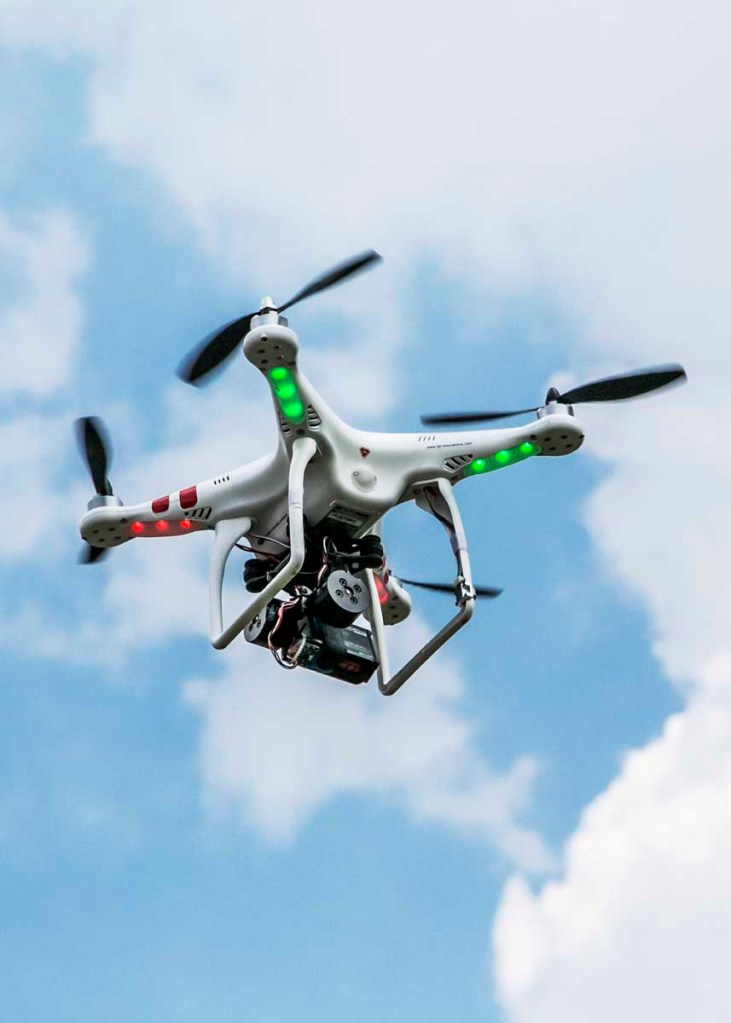That drone under your Christmas tree will have to be registered with FAA
Published 12:30 pm Monday, December 14, 2015

- Unmanned Aerial Vehicle takes to the skies to collect images or video of problems in the fields.
WASHINGTON – With drones one of the hot items for Christmas this year, the Federal Aviation Administration on Monday announced new regulations that will require that the mini-aircraft be registered and marked with their registration numbers.
Deputy FAA Administrator Michael Whitaker said the most drone operators have “little or no aviation experience.”
“As soon as they start flying, they’re pilots,” he said in a conference call with reporters.
There may be 700,000 new drone owners by the time New Year’s day arrives, according to the Consumer Electronics Association’s estimate of Christmas season drone sales.
The thrill of flying their own mini-aircraft, often with a video camera attached to scan what’s below, appeals to more than one-third of Americans, according to a survey by the Saint Leo University Polling Institute. Those people told the pollsters they thought drones would be “a fun hobby.”
But the same poll found that most people were worried that drones with cameras might invade their privacy, put airplanes with passengers on board at risk, be used to deliver bombs or fall victim to hackers.
For example, almost 82 percent of people said that drones shouldn’t be allowed to photograph one’s backyard, house, or family. And 47 percent said private citizens should not be allowed to own drones.
“It is surprising that so many Americans want to ban private citizens from owning drones, even though more than one-third of survey respondents want to own a drone someday,” said Leo Ondrovic, a member of the Saint Leo University faculty who is licensed as a pilot.
Ondrovic said the worries expressed by many people in the poll may have be exaggerated because they were unaware of the FAA’s plans for regulations.
“There is widespread agreement that industrial use of drones should be regulated,” he said.
Under the new regulations, drone operators will be required to register their unmanned aircraft and apply their registration number to the drone. The same number could be applied to other drones that they own.
An FAA registration website is expected to be operating by Dec. 21, Whitaker said.
Registration will cost $5 for three years, but the fee will be waived for the first 30 days the website is in operation. Applicants will be required to provide name, address and an email address. In addition to the registration number affixed to the drone, when operating the aircraft people will be required to carry their FAA registration.
If a drone were sold by its initial owner or given as a gift, the new owner would be required to register it.
Drones weighing between half a pound and 55 pounds must be registered. Drones above that weight go through normal FAA registration requirements for aircraft.
“Registration provides us with an opportunity to educate unmanned aircraft users about how to operate safely,” Whitaker said. “This means flying below 400 feet altitude, keeping your unmanned aircraft in sight at all times, staying away from manned aircraft, never flying over groups of people, stadiums or sporting events. And when you want to fly within five miles of an airport, contact the airport or control tower beforehand.”
Whitaker said most often when people operate a drone in violation of the regulations and rules of common sense, it’s due to lack of education.
“It will also create accountability, so when a drone is located that has been flying improperly we’ll be able to locate the owner,” he said. “There’s nothing that would require an enforcement action if we just get someone to do what they’re supposed to do.”
The only way FAA could enforce the regulations would be by recovering a drone that had been used improperly.
Failure to register or improper use of a drone could carry a civil penalty of up to $27,500 and criminal charges could cost up to $250,000 and 3 years prison
“That would be the maximum in an egregious circumstance,” Whitaker said. “The goal is not to be punitive, but to get people into compliance with the operating rules.”

